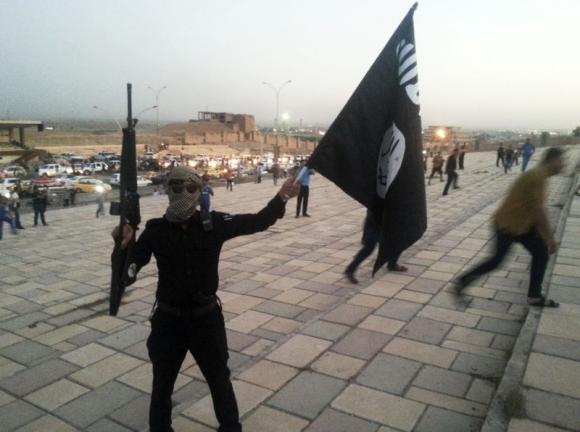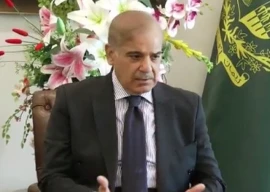
The government has chalked out a comprehensive strategy to deny the ultra-extremist Middle Eastern group Islamic State, also known by its Arabic acronym Da’ish, a foothold in Pakistan. IS has established a self-proclaimed caliphate on large swathes of land in Iraq and Syria and its self-styled caliph Abu Bakr alBaghdadi is seeking allegiance from other extremist groups from across the world.
In Pakistan, graffiti in support of IS has emerged recently in several cities, while some Taliban commanders and sectarian extremist group Jundullah have pledged allegiance to the group. At a testimony before the Senate foreign affairs committee late last month, Foreign Secretary Aizaz Ahmad Chaudhry
admitted that IS posed a threat to Pakistan.

The country’s top security agencies have been directed to immediately adopt measures to counter the emerging threat of IS in Pakistan, according to a seven-point strategy – a copy of which is available with The Express Tribune. The strategy
was shared with the Senate foreign affairs committee on February 23.
“Our security agencies have taken all possible measures to foil efforts by [local] terrorist and extremist organisations to develop linkages with IS,” a senior official of the foreign ministry told The Express Tribune on Sunday.
The government has also directed the country’s immigration authorities to be extra vigilant and closely liaise with the security agencies to ensure that no one from Pakistan proceeds abroad to join IS ranks, the official said requesting anonymity.
According to the seven-point strategy, security agencies have enhanced surveillance of religious institutions to ensure they are not infiltrated by elements favourable to IS. Similarly, financial institutions, like the State Bank of Pakistan, have been told to pay special attention to the outflow of funds to avoid any assistance to IS.
In his testimony before the Senate committee, the foreign secretary called for diplomatic engagements with all the countries concerned, particularly those in the Gulf region, for exchange of information about the ultra-extremist group. “We reject the alleged allegiance of some terrorist elements [with IS] in Pakistan. We vehemently reject the notion of a so-called caliphate by IS, as it would create political chaos.”
Former ambassador Ashraf Jehangir Qazi, however, believes that if injustice and bad governance continue, militant groups might gain more ground in Pakistan. “Pakistan cannot afford the presence of Da’ish or its supporters. The state is already fighting a war against militants associated with the Taliban and al Qaeda,” he said while talking to The Express Tribune.
“The Pakistani government will have to improve the living standard of its citizens – this is the key to stopping people from falling into the hands of such elements,” he said. “If people are prosperous and well educated, there will, of course, be less room for militant organisations to push [forward] their narrative.”
Former interior minister Rehman Mailk said Pakistan should take the IS threat seriously as there were many militant groups receptive to the ideology of the Middle Eastern group. “Pakistan should establish a separate intelligence unit to counter the threat,” he suggested. “[And] this unit should liaise with international counter-terror authorities.”
Published in The Express Tribune, March 9th, 2015.






1725254039-0/Untitled-design-(24)1725254039-0-270x192.webp)
















COMMENTS
Comments are moderated and generally will be posted if they are on-topic and not abusive.
For more information, please see our Comments FAQ